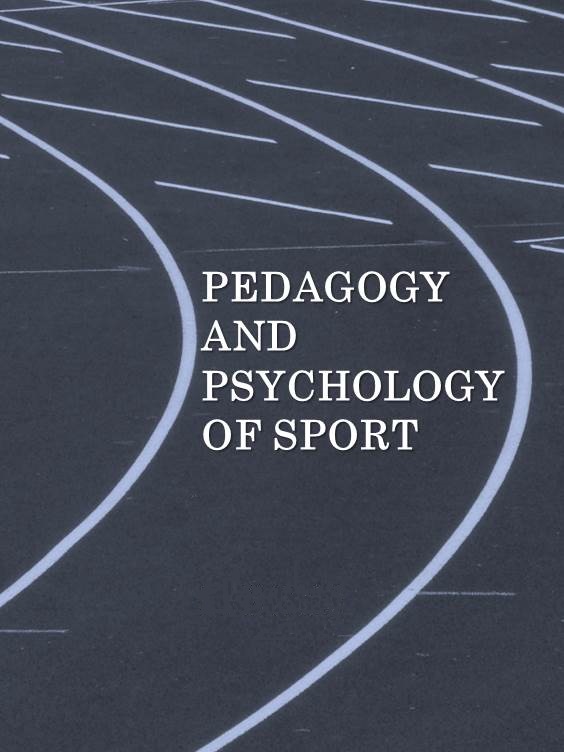Students personality and field of study
DOI:
https://doi.org/10.12775/PPS.2020.06.02.012Keywords
pedagogy, psychology, personality, students, universitiesAbstract
Background and aim. Personality is shaped through external interactions and interests. The aim of the study was to check whether university students have a similar personality (as applicants for higher education) or a different personality (due to their field of study). Material and method. 60 full-time students aged between 20 and 29 years old were examined in three groups of 20 people from universities: University School of Physical Education in Wrocław (field of study: Sport), University of Zielona Góra (field of study: Construction) and University of Economics in Wrocław (field of study: Economics). The Personality Inventory NEO-FFI was used to measure personality. Results. Only one statistically significant difference was noted. Economics students had a lower level of neuroticism compared to sports students. Conclusions. The personality of students is not dependent on the field of study. Students as applicants for higher education have a similar personality.References
Arcidiacono, P. (2004). Ability Sorting and the Returns to College Major. Journal of Econometrics, 121 (1-2), 343–375.
Arcidiacono, P, Hotz, VJ, Kang, S. (2012). Modeling College Major Choices Using Elicited Measures of Expectations and Counterfactuals. Journal of Econometrics, 166 (1), 3–16.
Barrick, MR, Mount, MK. (1991). The Big Five Personality Dimensions and Job Performance: A Meta-Analysis. Personnel Psychology, 44, 1–26.
Borghans, L, Duckworth, AL, Heckman JJ, ter Weel, B. (2008). The Economics and Psychology of Personality Traits. Journal of Human Resources, 43 (4), 972–1059.
Borghans, L, ter Weel, B, Weinberg, BA. (2008). Interpersonal Styles and Labour Market Outcomes. Journal of Human Resources, 43 (4), 815–858.
Costa Jr., P., McCrae, R. (2007). NEO-FFI Personality Inventory. Warsaw: Pracownia Testów Psychologicznych.
Cunha, F, Heckman, J. (2007). The Technology of Skill Formation. American Economic Review, 97 (2), 31–47.
de Fruyt, F, Bartels, M, van Leeuwen, KG, de Clercq, B, Decuyper, M, Mervielde, I. (2006). Five Types of Personality Continuity in Childhood and Adolescence. Journal of Personality and Social Psychology, 91 (3), 538–552.
Heckman, JJ, Stixrud, J, Urzua, S. (2006). The Effects of Cognitive and Noncognitive Abilities on Labor Market Outcomes and Social Behavior. Journal of Labor Economics, 24 (3), 411–482.
Humburg, M. (2017). Personality and field of study choice in university. Education Economics, 25 (4), 366-378.
Krueger, AB, Schkade, D. (2008). Sorting in the Labor Market: Do Gregarious Workers Flock to Interactive Jobs? Journal of Human Resources, 43 (4), 859–883.
McCrae, R., Costa Jr., P. (2003). Personality in Adulthood: A Five-Factor theory perspective. New York: Guilford Press.
Mount, MK, Barrick, MR, Stewart, GL. (1998). Five-Factor Model of Personality and Performance in Jobs Involving Interpersonal Interactions. Human Performance, 11, 145–165.
Mueller, G, Plug, EJS. (2006). Estimating the Effect of Personality on Male and Female Earnings. Industrial and Labor Relations Review, 60 (1), 1–22.
Nyhus, EK, Pons, E. (2005). The Effects of Personality on Earnings. Journal of Economic Psychology, 26, 363–384.
O’Connor, MC, Paunonen, SV. (2007). Big Five Personality Predictors of Post-Secondary Academic Performance. Personality and Individual Differences, 43, 971–990.
Piepiora, P, Cięszczyk, I, Krzesiński, M. (2017a). Wizerunek a agresywność młodych sportowców na przykładzie wybranych dyscyplin sportowych. Roczniki Naukowe Wyższej Szkoły Wychowania Fizycznego i Turystyki w Białymstoku, 19 (1), 45-51.
Piepiora, P, Cięszczyk, I, Krzesiński, M. (2017b). Young athlete personality model using the example of selected sport disciplines. Roczniki Naukowe Wyższej Szkoły Wychowania Fizycznego i Turystyki w Białymstoku, 22 (4), 5-13.
Piepiora, P, Cięszczyk, I, Krzesiński, M. (2018). Różnice w temperamencie wśród młodzieżowych zawodników trenujących sport indywidualny i zespołowy. Roczniki Naukowe Wyższej Szkoły Wychowania Fizycznego i Turystyki w Białymstoku, 25 (3), 44-50.
Roberts, B, Caspi, A, Moffit, T. (2001). The Kids Are Alright: Growth and Stability in Personality Development from Adolescence to Adulthood. Journal of Personality and Social Psychology, 81 (4), 670–683.
Tokar, DM, Fischer, AF, Subich, ML. (1998). Personality and Vocational Behavior: A Selective Review of the Literature, 1993–1997. Journal of Vocational Behavior, 53 (2), 115–153.
Downloads
Published
How to Cite
Issue
Section
License
The periodical offers access to content in the Open Access system under the Creative Commons Attribution-NonCommercial-ShareAlike 4.0
Stats
Number of views and downloads: 788
Number of citations: 0
